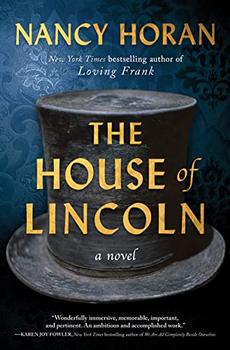Book Club Discussion Questions
Want to participate in our book club? Join BookBrowse and get free books to discuss!
Please be aware that this discussion guide will contain spoilers!
- Ana and her family immigrated from Portugal. Once in Illinois, her father seems determined to assimilate while her mother clings to her Portuguese roots (p. 7-8). Do you think Genoveva would have been happier if she'd tried to adapt to her new circumstances, as her husband insists? Do you have first-hand experience with people who've permanently moved to a new country, and if so, how did they adjust?
- Spencer and his brother William consider moving to Chicago (p.52), where Blacks have greater freedom, but ultimately, they decide to return to Springfield. What would you have done in their place, and why?
- Ana thinks to herself "That was what you did in America. You started at low wages toiling for somebody else, but with hard work, in a year or two, you could have employees working for you." (p 52) How possible was this part of the American Dream for most people in the mid-19th century? Do you think it's any more or less achievable today? Why or why not?
- Did you learn anything new about the historical figures in the book (Abraham Lincoln, Mary Todd Lincoln, Frederick Douglass, et.al.)? Did your opinion of them change? Were any new to you? Were there real-life individuals presented who you would like to know more about?
- Many of the Republicans who opposed Abraham Lincoln, particularly Stephan A. Douglas, preferred allowing federal territories to decide whether slavery would be legal within their borders. What do you believe would have happened if this policy, known as popular sovereignty, had become law? In your opinion, what types of issues should be decided within each state, and which at the federal level?
- Robert Lincoln is 18 when his father is elected to the presidency. How do you imagine he viewed Abraham as a father and as a politician?
- Cal and Ana discuss their futures (p. 110), and Ana concludes, "The future depended on marriage. Marriage meant you had a plan." What do you think of this statement? Do you agree it was true at the time? How much has this changed in today's United States?
- Ana finds a note Lincoln wrote outlining his thoughts on slavery (p.86): "If A can prove…that he may of right enslave B, why may not B snatch the same argument and prove equally that he may enslave A?" Why do you think his logic failed to sway more of the population?
- In discussing the Lincoln-Douglas debate, Owen opines that the debates are like boxing matches (p. 147). Do you feel the comparison is apt? Are today's presidential and vice-presidential debates similarly combative, or do you feel they're more reasoned? Do you believe they add value to the public's understanding of the candidates, or are they an outdated tradition?
- Mary Lincoln refers to a tradition that "once a man is chosen as the presidential candidate, he no longer gives speeches" (p. 158). How do you think that helped or hurt a candidate in the 1850s? Do you feel it would help or hurt today's candidates if this tradition returned?
- As Lincoln leaves Springfield for Washington, he tells his audience, "I go to assume a task more difficult than that which devolved upon General Washington." Do you agree with him?
- Spencer tells Cal that Lincoln "had brought about what no one else could do" (p. 260). Do you believe this was true? What would have happened, do you think, if Lincoln hadn't been elected president? How would the United States be different if he hadn't been assassinated?
- Ana thinks to herself that Lincoln "was born in a time and place where race prejudice was learned early on" (p.322) yet he overcame his biases. How do you think we can identify our own prejudices, and how do we become more tolerant?
- Ana worries that the race riot of 1908 will become a "condemned memory that will be unknown in fifty years" (p. 332). Do you think her fears are justified? Do you believe shameful historical incidents do get permanently forgotten, or are they only suppressed temporarily? Is our response to such incidents different today then it was a century ago?
- Reverend Magee tells his congregation, "In another hundred years…I believe that prejudice shall have been banished as a myth and relegated to the dark days of Salem witchcraft." In what ways do you think his prediction has come true, and in what ways has it not? Do you think his vision will ever be completely realized? Are there steps we can take to help make it a reality?
- At the end of the book, Ana tries again to contact Cal but is ignored. Why do you suppose Cal decides against corresponding with Ana?
- What about the novel surprised you? Did you learn anything new about the time period?
Discussion guide created by BookBrowse.
Unless otherwise stated, this discussion guide is reprinted with the permission of Sourcebooks. Any page references refer to a USA edition of the book, usually the trade paperback version, and may vary in other editions.
